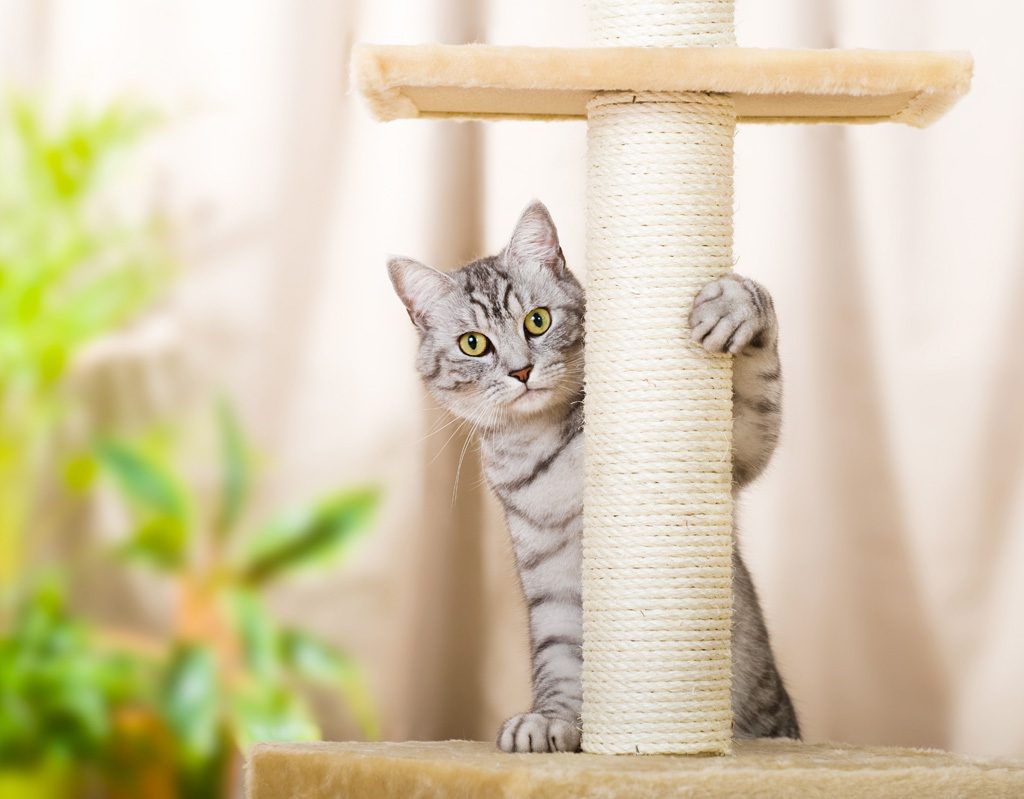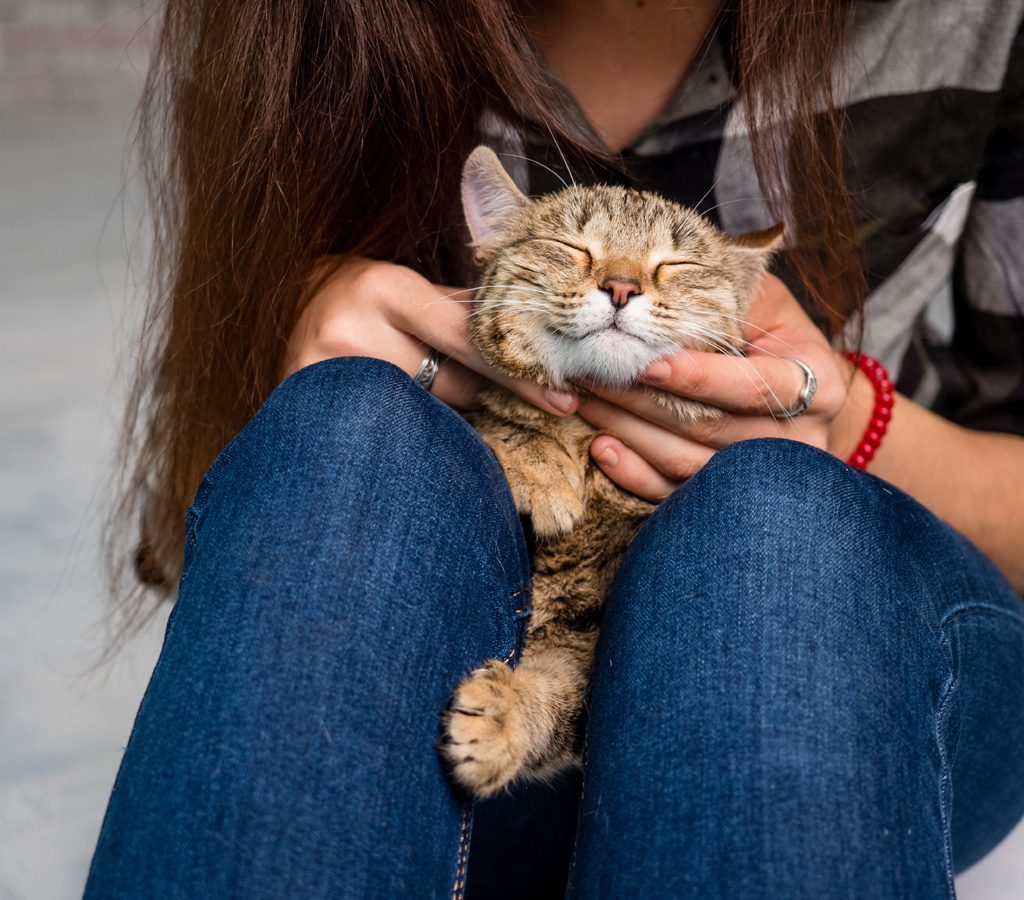Your cat has a soft, silky coat and clear, bright eyes. She enjoys soaking up the sun from her favorite window seat and comes running to the kitchen at mealtimes. These are all signals that your cat is healthy, but is she really happy? You can get the answer to that question by taking a Feliway quiz that analyzes just how content your cat is with her life.
Most pet parents don’t recognize symptoms of a stressed cat, according to experts at Ceva Animal Health, the company that produces Feliway cat products designed to help relieve anxiety in cats. The Feliway quiz asks pet parents a series of questions revolving around the number of cats in a household, a cat’s sleeping and grooming habits, a cat’s play style and activity level, as well as any unusual behaviors.
Pet parents simply submit their answers and within minutes receive an email offering feedback on their cat’s (or cats’) happiness level. The quiz pinpoints signs that a cat may be stressed—for example, peeing accidents, excessive scratching, or hiding—and provides tips on how to address these problems.

Signs your cat is happy
Cats lack the facial expressiveness of dogs and are generally quieter, so their behaviors can be harder to interpret, say experts at the Humane Society of the United States (HSUS). However, by paying attention to your kitty’s vocalizations, body postures, and daily routine, you can learn how she’s feeling. Here are some signs that your cat is a happy camper.
Purring on your lap
If your cat is curled up on your lap, half asleep and purring in response to your gentle strokes, chances are good that she’s relaxed and happy. In many cases, say the experts at Meow Mix, soft purring signals your cat’s satisfaction with the world and is an audible sign of her contentment. However, despite popular, belief purring doesn’t always indicate happiness. Some cats also purr when they are hungry or stressed. The key to deciphering the purr is to consider it in context with other clues, like your cat’s body language and demeanor.
Kneading
This is when cats work their paws on a soft surface, like your lap or a favorite blanket, as if kneading bread dough. Some cats may even drool and their eyes may glaze over, showing how content they are with this activity. According to HSUS experts, this is a leftover behavior from nursing, when kittens massaged their mother’s teats to make milk flow. Behaviorists believe that cats knead when they are really happy.
Your cat loves her food
Does your cat ask you for food by rubbing around your legs and meowing, or by leading you to her food bowl? A cat who loves her food and has a healthy appetite is generally happy. Carefully monitoring your cat’s eating habits is a great way to tell how she’s feeling, say experts at PetMD. For instance, if she’s overeating, it could mean she’s bored or depressed. Meanwhile, loss of appetite could signal a health problem.
Grooming herself in your presence
Grooming is an important part of a cat’s day. If your cat grooms herself near you, it’s a good indication that she’s content in her environment and trusts you, say experts at the Nebraska Humane Society. A great way to bond and show affection to your cat is to brush her while she’s settled down beside you.
Your cat loves laying on you
According to Ceva Animal Health, cuddling up on your lap is one way your cat shows that she loves you. Other signs of kitty love and contentment include headbutting and nose kisses. When your cat shows this type of affection, be sure to show your love by petting her gently until she falls asleep.
Your cat’s tail is held high
If your cat approaches with her tail straight up in the air and a relaxed flick at the top, that is a sign that she’s happy and confident. Pay close attention to the tip of the tail, though. If your cat’s tail is held high but the tip has a crook, that means she is undecided about what she feels, according to Beverly Hills Veterinary Associates. And when the tail is held high with the fur bristled or puffed out, that means she is agitated, angry, or afraid.

Pay attention to your cat’s signals
As pet parents, we all want to know that our animal companions are happy living with us. That can be especially challenging with cats, say the experts at Ceva Animal Health, because “our modern life often conflicts with our cat’s natural needs.” For example, we keep our cats inside for their safety when many of them would love to roam. Also, some cats would prefer their own space but have to adjust to living in a multi-pet household. A big step in helping our cats adjust to life indoors is understanding their body language. When we recognize the signs that our cats are stressed, we can take the necessary steps to help them become relaxed, happy members of our family.



